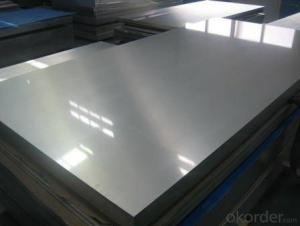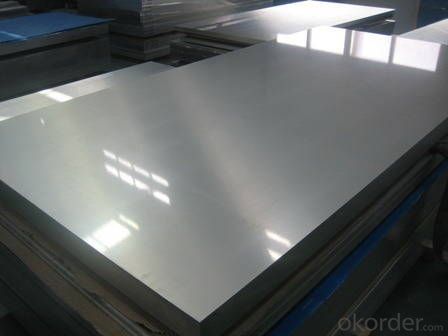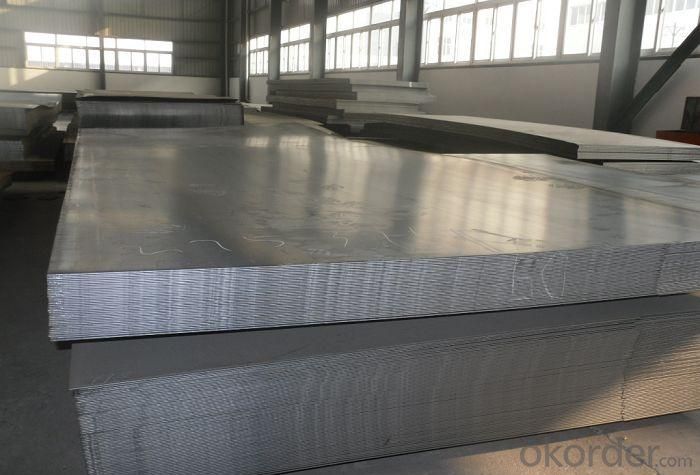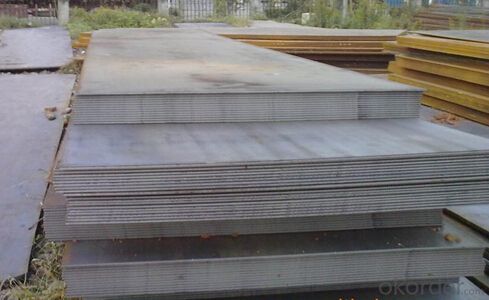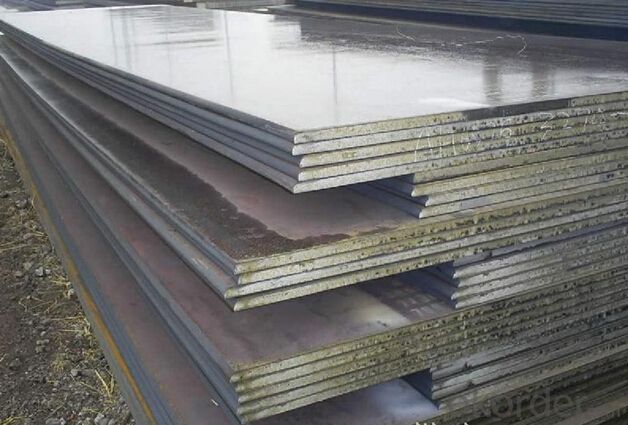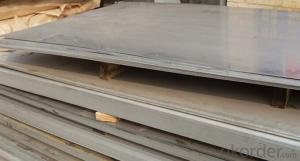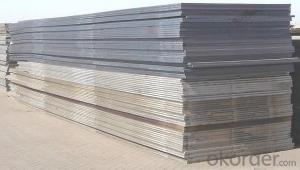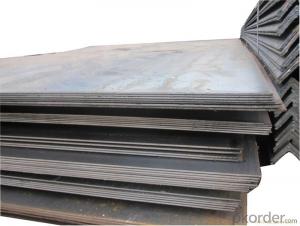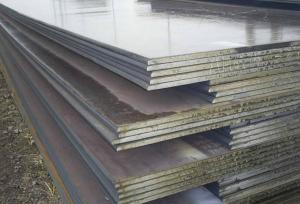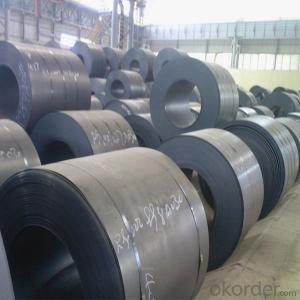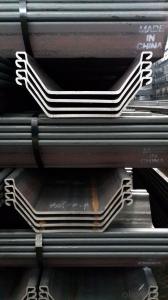Hot Rolled Carbon Steel Plate Sheet Prices
- Loading Port:
- Tianjin
- Payment Terms:
- TT or LC
- Min Order Qty:
- 3 m.t.
- Supply Capability:
- 10000 m.t./month
OKorder Service Pledge
OKorder Financial Service
You Might Also Like
Specification
Hot Rolled Carbon Steel Plate_Sheet Prices
Thickness:0.6-200mm
Width:1000-4000mm
MOQ: 1 ton
Certificate:ISO,SGS
Hot Rolled Carbon Steel Plate_Sheet Prices
Commodity | Prime hot rolled carbon steel plate / sheet dimensions |
Thickness | 0.6-200mm |
Width | 1000-4000mm |
Length | as custom's request |
Technique | Cold rolled or hot rolled mild steel plate |
Surface treatment | Bare, galvanized coated or as customer's requirements. |
Standard | ASTM,EN,GB,JIS |
Material | A283Gr.D/A573Gr.65,A516Gr65,A516Gr70,A284Gr.D SS400,SS300,CCSB A36,A32,LRA32,LRB,Q235 SAE1010,SAE1020,SAE1045,Q195,Q235,Q345,SS400,ASTM A36,E235B mild steel plate |
Usage | the mild steel plate will used in home appliances construction, machinery manufacturing, container manufacturing, shipbuilding, bridges, etc. |
Terms of Payment | 30% T/T as deposit and 70% T/T balance againest B/L copy. |
Delivery Detail | Within 3-15 days after receipt of deposited for the mild steel plate |
CNBM Introduction of Hot Rolled Carbon Steel Plate_Sheet Prices
CNBM International Corporation is the most import and export platform of CNBM group(China National Building Material Group Corporation) ,which is a state-owned enterprise, ranked in 270th of Fortune Global 500 in 2015.
With its advantages, CNBM International are mainly concentrate on Cement, Glass, Iron and Steel, Ceramics industries and devotes herself for supplying high quality series of refractories as well as technical consultancies and logistics solution.
After-sale service |
|
Advantages
|
|
Packaging & Delivery of Hot Rolled Carbon Steel Plate_Sheet Prices
Packaging Detail | Sea worthy packing /as per customer's packing instruction |
Delivery Detail | 15 ~ 40 days after receiving the deposit |
Products
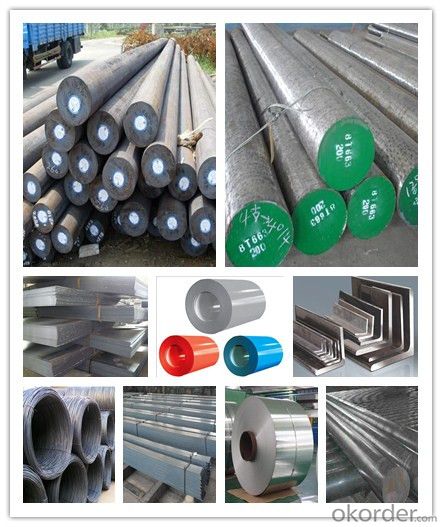
FAQ:
Are you a trading company or manufacturer? | Manufacturer |
What’s the MOQ? | 3 metric ton |
What’s your delivery time? | 15-35 days after downpayment received |
Do you Accept OEM service? | Yes |
what’s your delivery terms? | FOB/CFR/CIF |
What's the Payment Terms? | 30% as deposit,70% before shipment by T/T |
Western Union acceptable for small amount. | |
L/C acceptable for large amount. | |
Scrow ,Paybal,Alipay are also ok | |
Why choose us? | Chose happens because of quality, then price, We can give you both. Additionally, we can also offer professional products inquiry, products knowledge train (for agents), smooth goods delivery, excellent customer solution proposals. |
What's your available port of Shipment? | Main Port, China |
What’s your featured services? | Our service formula: good quality+ good price+ good service=customer's trust
|
Where are your Market? | Covering more than 160 countries in the world |
- Q: How are tool steels used in the manufacturing of cutting tools?
- Tool steels are used in the manufacturing of cutting tools due to their excellent hardness, toughness, and wear resistance. These steels are specifically designed to withstand high temperatures, pressures, and repeated impacts during cutting operations. They are used to make various cutting tools like drills, milling cutters, saws, and blades. The high hardness of tool steels allows them to retain their sharpness for longer periods, ensuring efficient cutting performance. Additionally, their toughness helps withstand the mechanical stresses encountered during cutting, while their wear resistance enables them to maintain their cutting edges even after prolonged use. Overall, tool steels are crucial in the manufacturing of cutting tools, enabling precise and efficient material removal processes in various industries.
- Q: What are the main applications of special steel in the medical implants?
- Special steels have numerous applications in the field of medical implants. They are commonly used in orthopedic implants such as joint replacements, screws, plates, and pins, due to their high strength and corrosion resistance. Special steels are also utilized in cardiovascular implants like stents and pacemaker leads, as they provide excellent biocompatibility and durability. Additionally, special steels find application in dental implants, surgical instruments, and prosthetics, owing to their ability to withstand sterilization processes and maintain mechanical integrity.
- Q: What are the applications of special steel in the defense sector?
- Special steel, which is also referred to as high-strength or high-performance steel, has a wide range of uses in the defense sector due to its distinct properties and capabilities. The utilization of special steel in the defense sector can be categorized into different areas: 1. Armor and ballistic protection: In the production of armored vehicles, tanks, and personnel carriers, special steel is extensively employed. Its exceptional strength and hardness make it an optimal material for safeguarding against ballistic threats like bullets, fragments, and explosives. Special steel plates reinforce the structure and provide penetration resistance. 2. Ammunition and weapon components: Various weapon components, such as barrels, bolts, and receivers, are manufactured using special steel. Its remarkable strength, durability, and resistance to wear and corrosion make it suitable for producing firearms and ammunition. Special steel alloys can endure the high temperatures and pressure generated during firing, ensuring dependable performance and durability of weapons. 3. Aircraft and aerospace components: Special steel is employed in the construction of aircraft and aerospace components like landing gears, engine parts, and structural elements. Its high strength-to-weight ratio allows for the production of lightweight yet sturdy components, enhancing the overall performance and safety of military aircraft. Special steel alloys also exhibit excellent fatigue resistance and can withstand high-temperature environments, making them suitable for demanding aerospace applications. 4. Naval applications: Special steel plays a vital role in the naval applications of the defense sector, including the construction of warships, submarines, and naval vessels. Its corrosion resistance, high strength, and toughness make it an ideal material for shipbuilding, ensuring the longevity and structural integrity of naval platforms. Special steel is also used in critical components like propeller shafts, hulls, and others that require exceptional strength and resistance to harsh marine environments. 5. Missiles and rocketry: Special steel is used in the manufacturing of missiles, rockets, and their propulsion systems. Its ability to withstand high temperatures, strength, and resistance to extreme forces make it suitable for producing critical components like rocket nozzles and motor casings. Special steel alloys can endure the intense heat and pressure generated during rocket propulsion, ensuring reliable and efficient performance. In conclusion, the applications of special steel in the defense sector are extensive and diverse. Its unique properties and capabilities contribute significantly to the development of robust, reliable, and high-performance defense systems, ensuring the safety and security of military personnel and assets.
- Q: Can special steel be used in the transportation industry?
- Yes, special steel can be used in the transportation industry. Special steel alloys, such as stainless steel and high-strength steel, offer superior strength, corrosion resistance, and durability, making them suitable for various applications in transportation. These steels are commonly used in the production of automotive components, aircraft parts, railway infrastructure, and ships, enhancing safety and performance in the transportation sector.
- Q: What are the different forging methods used for special steel?
- There are several different forging methods that are commonly used for special steel. These methods include open die forging, closed die forging, and ring rolling. Open die forging, also known as smith forging, is a technique where the metal is heated and shaped between flat dies or anvils. The metal is repeatedly hammered and rotated to achieve the desired shape. This method is commonly used for producing large and complex shapes with a high degree of customization. Closed die forging, also known as impression die forging, involves placing the heated metal between two or more dies that contain impressions of the desired final shape. The metal is then compressed to fill the impressions and take on the shape of the dies. This method is commonly used for producing small to medium-sized components with high precision and dimensional accuracy. Ring rolling is a forging method specifically used for producing seamless rings. The metal is heated and placed between two rollers that apply pressure to shape the metal into a ring. This method is commonly used for producing rings with large diameters and thin walls. In addition to these primary forging methods, there are various secondary forging processes that can be used to further refine and enhance the properties of the special steel. These secondary processes include heat treatment, such as annealing or quenching, to improve the material's strength and hardness. Additionally, machining operations may be performed to achieve the desired final dimensions and surface finish. Overall, the choice of forging method for special steel depends on factors such as the desired shape, size, and properties of the final product. Each method offers its own advantages and limitations, and manufacturers select the most appropriate technique based on the specific requirements of the application.
- Q: How does special steel perform in high-vibration environments?
- Special steel performs well in high-vibration environments due to its exceptional strength, durability, and ability to dampen vibrations. Its unique composition and heat treatment make it highly resistant to fatigue, reducing the risk of fractures or failures caused by constant vibrations. Additionally, special steel's excellent hardness and toughness properties allow it to maintain its structural integrity and performance even under severe vibration conditions.
- Q: What are the properties of maraging steel?
- Maraging steel is a type of high-strength steel known for its exceptional toughness, strength, and resistance to wear and fatigue. It possesses unique properties such as high yield strength, excellent impact resistance, and good corrosion resistance. Additionally, maraging steel exhibits good machinability, allowing it to be easily shaped and formed. This steel also has the ability to be heat treated to achieve even higher levels of strength, making it highly desirable for applications in aerospace, defense, and tooling industries.
- Q: Can special steel be used for making defense industry components?
- Yes, special steel can be used for making defense industry components. Special steel refers to a category of steel that is specifically designed and engineered to possess superior properties and characteristics compared to standard steel grades. These properties include high strength, excellent toughness, corrosion resistance, heat resistance, and wear resistance. In defense industries, components such as armor plates, military vehicles, weapons systems, aircraft structures, and naval vessels require materials that can withstand extreme conditions and provide optimal performance. Special steel, due to its exceptional properties, meets these requirements and is commonly used in the production of defense industry components. For example, armor plates used in military vehicles and personal body armor are often made from special steel alloys that can withstand ballistic impacts and provide protection to the personnel. Similarly, aircraft structures and naval vessels require steel that can withstand high stresses, corrosion from saltwater, and extreme temperatures, all of which can be achieved with special steel. Additionally, special steel is also used in the manufacturing of defense industry components due to its ability to be machined, welded, and fabricated easily. This allows for efficient production and assembly of complex defense equipment. Overall, special steel is a crucial material in the defense industry as it offers exceptional strength, durability, and performance characteristics, making it an ideal choice for manufacturing defense components that need to withstand rigorous and demanding conditions.
- Q: What are the common challenges in casting special steel?
- The casting of special steel comes with various challenges due to its unique properties and composition. Some common challenges associated with casting special steel include the following: 1. High melting point: Special steels often possess higher melting points compared to regular carbon steels. This necessitates the utilization of specialized equipment and techniques to achieve the required casting temperature. 2. Alloying elements: Special steels frequently contain alloying elements like chromium, nickel, molybdenum, or vanadium. These elements enhance the properties of the steel but can also complicate the casting process. Proper control and understanding of these alloying elements are crucial to ensure the desired mechanical properties in the final product. 3. Oxidation and decarburization: During the casting process, special steel is susceptible to oxidation and decarburization. The exposure to oxygen and high temperatures can lead to surface defects and carbon loss, which can compromise the strength and hardness of the steel. Precise control of casting parameters, such as atmosphere and mold design, is necessary to minimize these issues. 4. Shrinkage and porosity: Special steels often exhibit a higher shrinkage rate during solidification compared to regular steels. This can result in shrinkage defects and porosity within the castings. Appropriate gating and riser design, along with the use of suitable feeding systems, are critical to mitigating these issues and ensuring sound castings. 5. Thermal stresses: Special steels may display higher thermal expansion coefficients, leading to significant thermal stresses during cooling and solidification. These stresses can cause cracking and distortion in the castings. Proper design considerations, such as the use of chills or controlled cooling techniques, are essential to minimize thermal stress and maintain dimensional stability. 6. Machinability: Special steels, especially those with high alloy content, can be challenging to machine due to their hardness and toughness. Casting defects like inclusions, segregations, or non-uniform microstructure can further complicate the machining process. Appropriate selection of cutting tools and machining parameters is necessary to achieve the desired dimensional accuracy and surface finish. In conclusion, casting special steel presents a range of challenges related to high melting points, alloying elements, oxidation, shrinkage, porosity, thermal stresses, and machinability. Overcoming these challenges requires a comprehensive understanding of material properties, precise process control, and the implementation of suitable casting techniques.
- Q: How is boron steel used in automotive safety applications?
- Boron steel is used in automotive safety applications due to its high strength and ability to absorb and distribute impact energy. It is commonly used in the construction of safety cages, reinforcements, and components such as side impact beams, door beams, and crash boxes. Its exceptional crashworthiness properties help improve the structural integrity of vehicles, enhance occupant protection, and reduce the risk of serious injuries during accidents.
Send your message to us
Hot Rolled Carbon Steel Plate Sheet Prices
- Loading Port:
- Tianjin
- Payment Terms:
- TT or LC
- Min Order Qty:
- 3 m.t.
- Supply Capability:
- 10000 m.t./month
OKorder Service Pledge
OKorder Financial Service
Similar products
Hot products
Hot Searches
Related keywords
